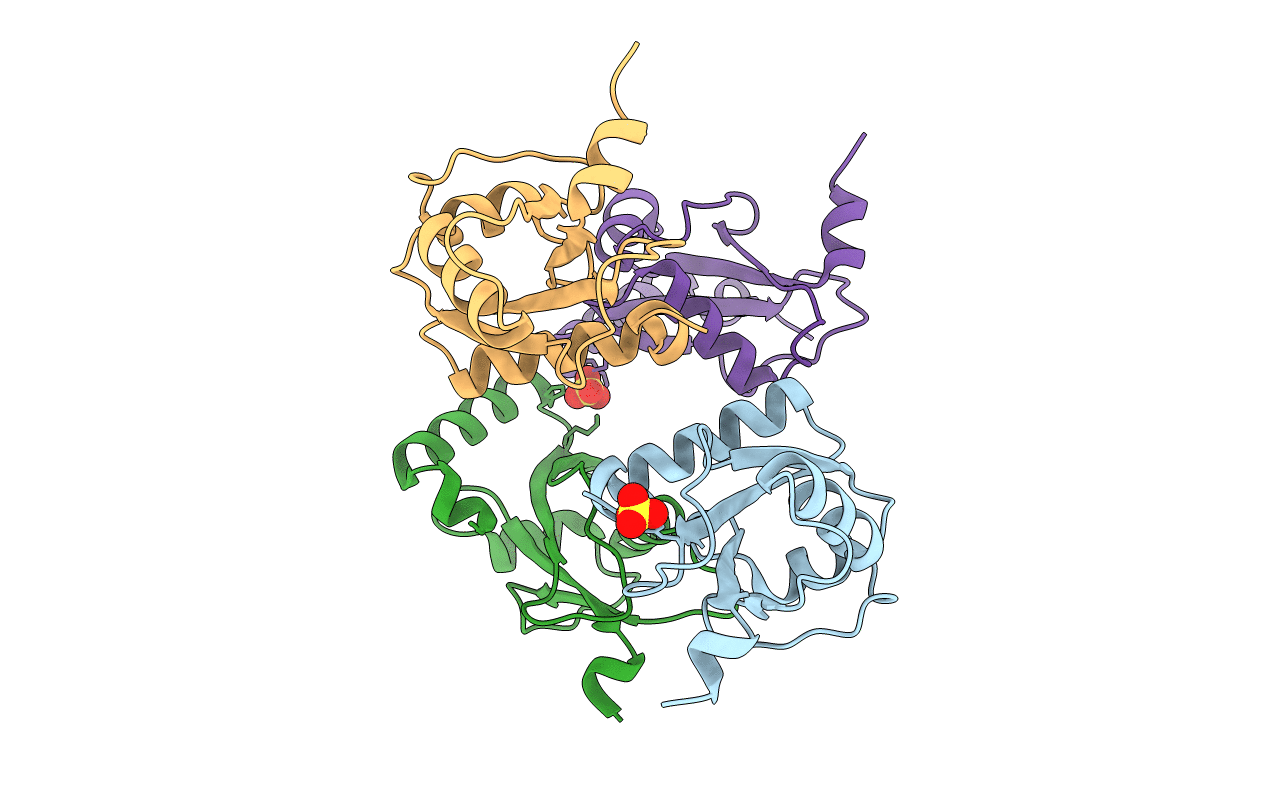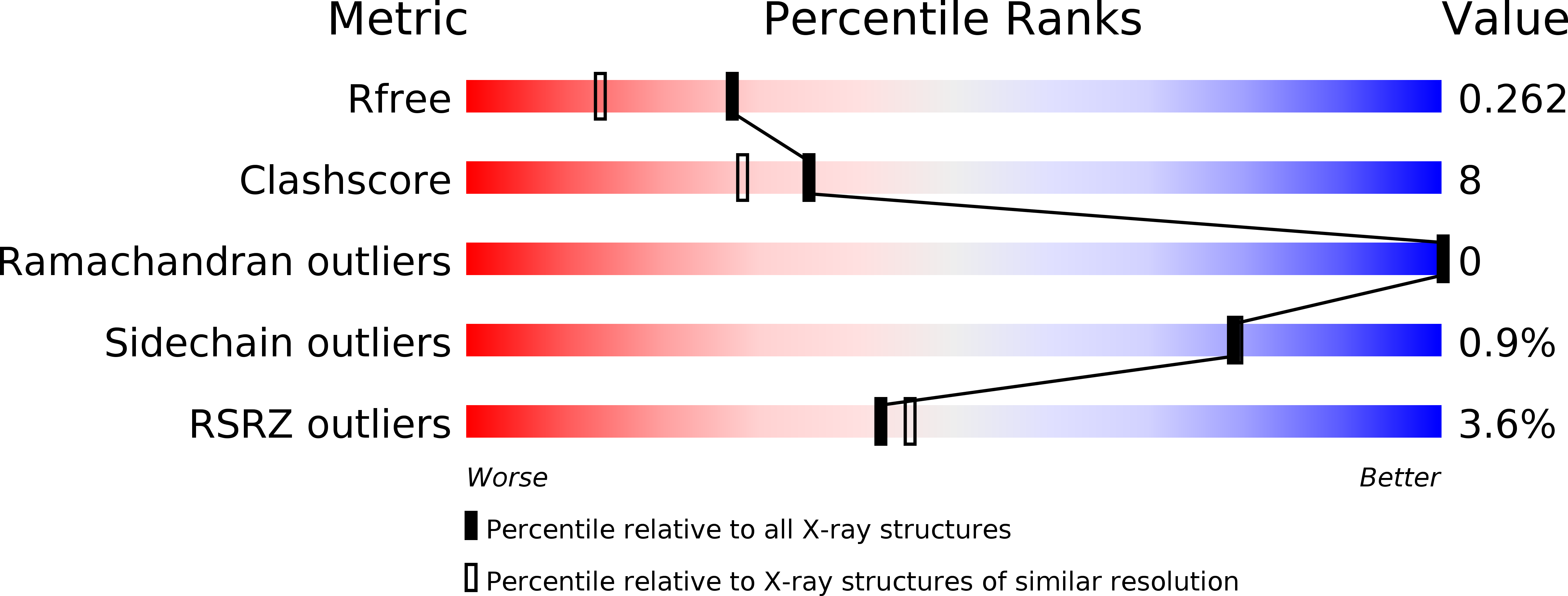
Deposition Date
2018-12-21
Release Date
2019-11-06
Last Version Date
2023-11-22
Entry Detail
PDB ID:
6J04
Keywords:
Title:
Crystal structure of full length human LC3B delta G120 mutant (2_125)
Biological Source:
Source Organism(s):
Homo sapiens (Taxon ID: 9606)
Expression System(s):
Method Details:
Experimental Method:
Resolution:
1.90 Å
R-Value Free:
0.26
R-Value Work:
0.20
R-Value Observed:
0.21
Space Group:
P 1


